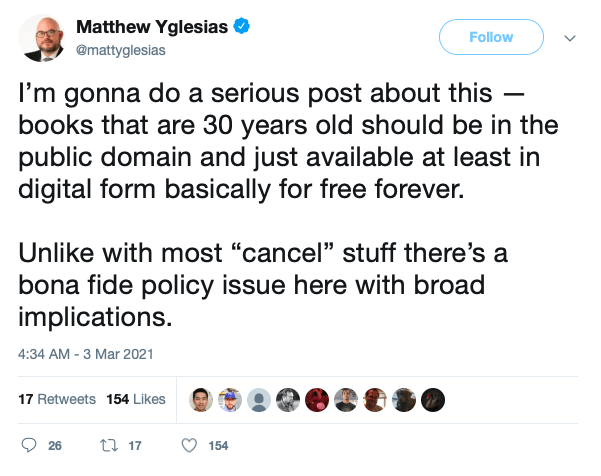Alan Partridge is by no means a great author nor a font of respected knowledge. His his autobiography “Bouncing Back” tells quite the opposite story. But he offers us a lesson in how we treat the knowledge we have.
Alan Wide Shut ends with Alan watching his book turn into “word porridge” as it is pulped. The scene ends with him running away, partly embarrassed, partly in fear.
What does this have to do with you, me and the library?
Stack 'em up
Anyone who has ever become so emerged in a subject that they seek out more obscure resources will be familiar with the “stacks”.
They are the hidden away parts of libraries where the books that have languished unborrowed on the main shelves end up when they are deemed eccentric. They are so hidden away that they are usually in a different location altogether, accessed only via a request to borrow usually on a slip of paper.
Yet simply because these books haven’t been borrowed or used for some period of time doesn’t make them worthless nor that the knowledge they contain should be dismissed or disposed.
In the course of my work I have found it necessary to access the stacks to look at a all sorts of material that has fallen out of favour. When the item arrives the first things you notice are the faintly musty smell and the book stamp that is 10 or more years old.
I worked in a department that was given a large collection of resources (maps, reports, plans, books and diaries) which had been gathered over numerous years and spanning a period of many more decades than that. When the department moved building the entire collection was thrown in the bin because there was no space to keep it.
These forgotten resources are at the mercy of space and money.
So what do we do?
The Free Word

My experience in using “out of date” resources makes me sympathetic to the problem and equally interested in finding a solution.
What is the problem?
Books get put in the stacks because they haven’t been taken out of the library for a period of time (this might be 10 years, it could be a lot less). When they don’t get taken out of the stacks they get put into the stores, an even deeper vault of discarded material. And eventually they get binned.
Yet learning and research isn’t always about the new. When I talk to people about research I encourage them to look hard at what they have so they don't reinvent the wheel.
Knowledge that has been collected by others shouldn’t be thrown away simply because it hasn't been accessed. No, the accessibility of this knowledge should be facilitated. The more we hide things, the less notieable they become.
This doesn't always happen. As trends change we do re-engage with past ideas, with data that has been collected and collated previously. We use this knowledge to be effient and effective. So let's aid creativity by allowing people to find and access what we already know.
Matty Glesias’ suggestion of making books free clearly kicked up a Twitter storm. I personally like Tom Chiver’s analogy.
Whilst making books free might not be the solution that works we can look for nuanced ways to achieve similar goals.
No Space, Make Space
I have referred to libraries. I have seen the way resources are lost to the stacks. I have seen the disposal (she might say destruction) of resources based on time and popularity.
And when I asked why it was because of space.
One of the institutions where I saw this has recently built a new, smaller library. I can’t help but think that this is a ever decreasing circle where we are heading blindly into a knowledge cul-de-sac.
We live in a digital age, for good and bad.
It is suggested by some that fewer people read physical books, that resources are increasingly accessed online. I don’t have the evidence to confirm or deny this. But it does suggest that whilst the physical resource might not be worth keeping fully accessible, why not digitise it to enhance how we can see it?
Yes, we need space for that but the servers and clouds required are much smaller than the vast floors of archive warehouse.
So here is my contributon to the debate: make digitized knowledge more accessible.
Maybe we don’t make books and other resources free to own but at least make then free to borrow digitally.
Resources can be accessed easily and remotely, even from the comfort of your arm chair. They can be scanned, sorted and saved so that we can find what is relevant and interesting and can be used more effectively. They can become more accessible in so many ways.
And in doing so we continue to enhance and embed the role of our libraries as places where we access information, learn and develop.
Prior to its binning I asked if the collection of maps, plans and reports could be digitised. No, was the answer, it couldn’t. Why? There was no money to do so. There was no space and there was no money. Did we really value the that knowledge?
Books, reports, data: they aren’t merely knowledge word porridge. They are resources that have taken time and energy to put together. We should value that effort and invest in continuing to make the knowledge within it accessible so that we can use what we already as we solve problems and build our new ideas.
Just like Alan I am embarrassed and fearful that we neglect the knowledge we already have. We never know if and when it will bounce back into the mainstream.
* As with all content on Twitter, it is worth sifting through the quality and quantity of contribution whilst keeping an open mind to what is being said. However, this author takes no responsibility for any feelings of rage that the thread might induce.
Photo credit: Robert Anasch on Unsplash
You may also be interested in
Thought, inspiration and how-to straight in your inbox - Sign up today
By subscribing you will receive our newsletter up to 4 times a year and occasional news of forthcoming events. You can unsubscribe at anytime.




